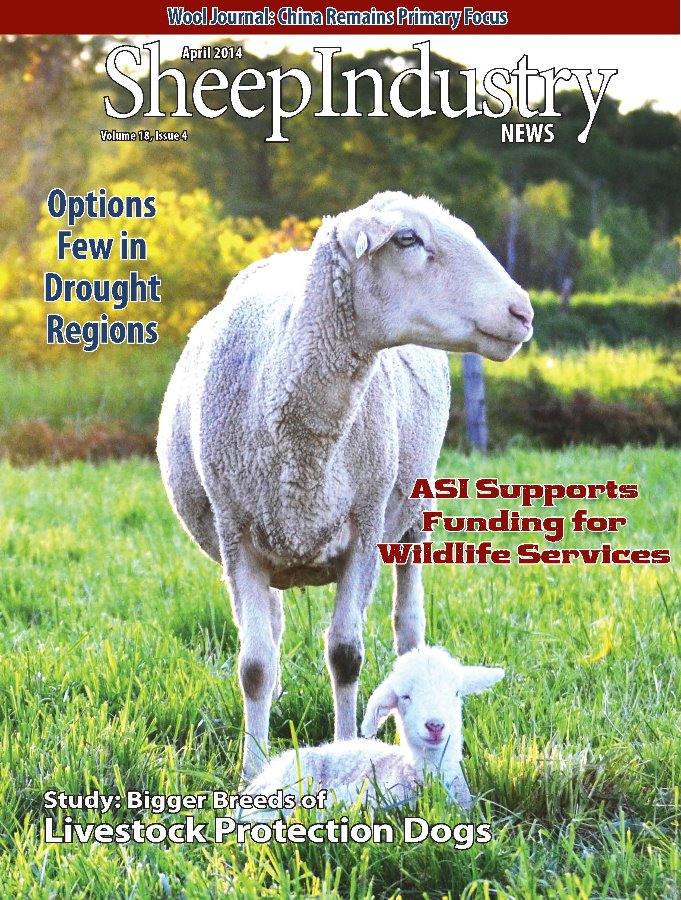
- April 2014
- President’s Notes
- Market Report
- ASI Takes Lead in Supporting Funding for Wildlife Services
- Larger LPD Breeds Being Considered
- Ranchers and Producers Affected by Drought Looking for Options
- States Release Wolf Reports, as Required by Feds
- Helping the Outdoor Industry ‘Rethink the Way it Sees Wool’
- Sheep Producer and Artist
- From Sheep Farm to Farm Bill
- Black Hills Stock Show Sheep Shearing Contest
ASI Takes Lead In Supporting Funding for Wildlife Services
Delivered in mid-March, the letters were addressed to high-ranking members, including Congressman Hal Rogers, Chair of the House Committee on Appropriations, and Senator Barbara Mikulski, Chair of the Senate Committee on Appropriations. Along with ASI, the letters featured signatures from 168 other organizations representing food producers, wildlife organizations, sportsmen, aviation, local governments and various resource interests.
“We appreciate your demonstrated leadership and strong support of this essential program,” the letters state. “Our organizations are committed to working with you to strengthen Wildlife Services’ resources and to ensure a continued federal partnership in the responsible management of our nation’s wildlife.”
The letters are a powerful and unified message to Congress on the importance of federal wildlife management, said Peter Orwick, ASI’s executive director.
“An incredible cross section and share of America’s food production is represented in this letter, a fact not lost on federal policy makers particularly when combined with the strong support of sportsmen, wildlife groups, aviation and state and county government,” Orwick noted.
Wildlife causes more than $12.8 billion in damage each year to natural resources, public infrastructures, private property and agriculture. Wildlife Services, a division of the U.S. Department of Agriculture’s Animal and Plant Health Inspection Services, works to prevent, minimize or manage wildlife damage. It also works to protect human health and safety from conflicts with wildlife.
“It is the cooperative nature of Wildlife Services that allows the agency to accomplish so many programs and make it the most cost effective and efficient program in the federal government,” said Orwick, who is encouraging livestock producers and others in the industry to view the letter on the ASI website and to share it with U.S. Representatives and Senators.

